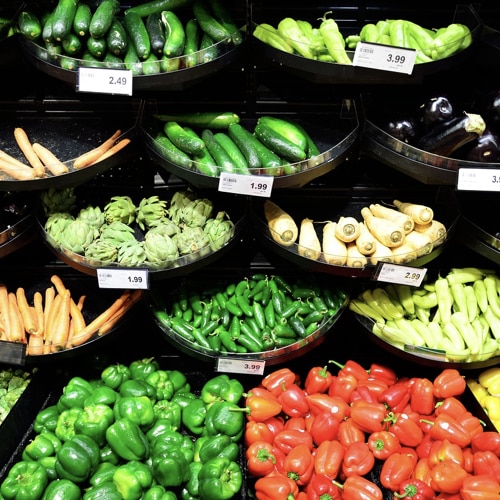The short just answer to the latest trend disrupting the food industry is – yes, it does promote durability and reduces Carbon dioxide emissions. But, may be the only reason? The answer then is definitely no.
The growing awareness regarding plant-based diets and its greater adoption is attributed to environmental sustainability, considerations about health and wellness, the shift towards green life and eating habits, and dietary restrictions. Veganism right now is no longer considered simply a fad but a life style. People are shifting for you to flexitarian, vegan, and in the area sourced food diet programs, simultaneously enabling environmental sustainability and reducing the carbon footprint. According to a study performed by Blue Corporation and PwC, if 10% of the global meat-consuming inhabitants shifts to plant-based diet programs, it could potentially lessen 176 million tons of carbon dioxide emissions, save 8.6 billion cubic yards of water, and no cost 38 million hectares regarding land every year.
Furthermore, the shift to this particular diet opens up fresh exciting opportunities pertaining to vendors focused on offering plant-based proteins such as plant-based various meats and plant-based cheese within the global market.
Read: U.S. Plant-based Meats Market Industry View and Forecast 2019-2024
The arrival of Plant-Based Protein
Arizton’s newest report on the plant-based proteins market is projected to understand an absolute growth of around 66% by 2025. The requirement for plant-based protein has been demonstrating a steady growth as a result of growing consumer awareness, as a result of various reports and researches, and recommendations by global health authorities. Recently, the government bodies in the UAE as well as New Zealand have expressed interest in launching across the country initiatives to promote attention and adoption of plant-based nutrition. Several other nations are encouraging vendors and ancillary market sectors to introduce plant-based food choices for customers.

The ‘Impossible Whopper’, the plant-based alternative by Jack in the box made with Impossible Food’s burger patty is one of such options are numerous introduced in the market to advertise the adoption associated with plant-based diets. From fast-food stores to fine cusine restaurants, from home improvement stores to the local supermarkets everyone is stocking upwards and offering vegan options to tap into the large plant-based protein customers.
Normally, plant-based protein consumption is growing rapidly in developed markets, such as, the usa, the UK, Germany, Portugal, and the Netherlands, while in developing markets for example, China, Japan, Brazilian, Mexico, South Africa, along with Australia, the demand plant-based market is at an initial growth stage.
Examine our latest set of Natural Sugar Substitutes Market World-wide Outlook and Outlook 2020-2025
Rise of Alternative Various meats Options
Meat generation is associated with environmental influences and, in particular, green house emission. Approximately 15% involving greenhouse gas pollution levels come from livestock production, of which 40% is due to ground beef and dairy grinding. Hence, innovations involving plant-based alternatives that include soy-based tofu, wheat-based seitan, as well as veggie burger lean meats are being introduced inside the global market. The international meat alternative market is currently comprised of 1% of the global meat market in 2019. With increasing interest, the global meats alternatives, which include the two plant-based meat and lab-grown beef alternatives, are expected to be able to comprise 10% of the business by 2029.
Moreover, plant-based diet plans increase health benefits which help improve cholesterol, reduce blood pressure, eliminate surplus sugar, boost the intake of fibers, and decrease swelling. When some of the world’s greatest meat-producing companies, such as Cargill as well as Tyson Foods are investing in R&D for sustainable health proteins alternatives. Hence showing that there is some value to the shift towards ‘fake meat’ options.
Read: Plant-based Meats Market Global Outlook and Forecast 2020-2025
The joy of Plant-based Cheeses
Lactose intolerance and the launch of vegan mozzarella dairy product alternatives opened the joy of plant-based cheese in the global market. The whole ” new world ” of cheese suppliers is using plant-based ingredients such as soymilk, almond, and cashew milk to produce a similar cheesy creation that resembles real milk cheese in terms of flavor and texture. The shift in customer personal preferences to healthy, sustainable, and high nutrition food items will boost the adoption of plant-based dairy options in the global marketplace.
Read our latest report on Plant Health proteins Market Global Perspective and Forecast 2020-2025
Are you aware that plant-based cheese or vegetarian cheese accounted for approximately 6% of the global non-dairy milk market? And western world like the US and the UK are amongst the biggest consumer of parmesan cheesse made of soymilk, almond milk, cashew whole milk, coconut milk, and several others. Such large-scale usage of plant-based cheese is disrupting the food sector and enabling foods tech to take the entrance seat in a lot of innovative developments.
Though sustainability is often a key factor encouraging customers to adopt plant-based diets, preferences, texture, and types are also not taking a new backseat in this transfer. Furthermore, the shift is creating a completely new eco-system of locally acquired, eco-friendly, plant-based foods in the international market. This is may also have a significant cascading relation to the other ancillary industrial sectors. Going plant-based is not only helping save the planet nevertheless, opening doors to some brave new world.
To read more about Plant Protein Market go this popular web page.
